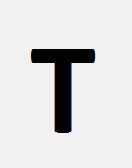In a competitive job market, possessing strong communication skills is more crucial than ever. Employers actively seek candidates who can effectively convey their ideas, collaborate with teams, and articulate their thoughts with precision. To secure a position, it's essential to possess these Communication Skills Qualifications but also demonstrate them in interviews. In this blog, we'll explore effective strategies for navigating Communication Skills Interview Questions, ensuring you leave a lasting impression.
Understanding the Importance of Communication Skills Qualifications
First, let's discuss why communication skills are so important in the working world before we go into techniques. Effective communicators, whether in writing or vocally, are in high demand by employers in all sectors. A better work atmosphere, improved teamwork, and increased productivity are all outcomes of having strong communicators on staff.
Interviews are a chance to showcase your communication abilities, which may make or break your chances of getting the job. Skills in information transmission, active listening, and style adaptation are highly prized in every field and by all employers. Knowing this, let's look at practical ways to do well in situations where you'll be tested on your communication abilities.
Thoroughly Research the Company Culture
To impress interviewers, you need to know the company's culture. Responding in a way that fits in with the organization's culture and ideals demonstrates your flexibility and compatibility. Learn as much as possible about the company's goals, objectives, and communication strategies by reading them online. Do they have a reputation for working well with others? How highly do they regard originality and imagination? By answering these questions, you better align your answers with the company's values.
Practice Active Listening
Active listening is a fundamental component of successful communication, which is a two-way street. Pay close attention during an interview and answer the questions asked. Before you react, paraphrase and summarise the main ideas to show that you are an engaged listener. That way, you may demonstrate that you can take in a lot of material and confidently answer the interviewer's questions.
Tailor Your Responses to Key Communication Skills Interview Questions
Prepare for typical interview questions on your communication abilities by thinking about your past experiences and coming up with unique answers. To demonstrate your communication abilities, you may answer questions like "Can you describe a situation where you had to resolve a conflict within a team?" or "How do you handle constructive feedback?" respectively. Give specific instances of your strong communication skills by organizing your answers using the STAR technique (Situation, Task, Action, Result).
Showcase Emotional Intelligence
One of the most important aspects of good communication is emotional intelligence. Candidates who are self-aware and empathetic and can handle interpersonal dynamics well are highly sought after by employers. In your comments, include specific examples of when you showed emotional intelligence, such as dealing with difficult circumstances, building cohesive teams, or resolving disagreements. One of the hallmarks of an effective communicator is the capacity to recognize and control one's emotions and those of others.
Craft a Compelling Narrative
We are hardwired to relate to narratives. Tell captivating stories as you talk about your life experiences. This will help you demonstrate your communication abilities in a meaningful way to the interviewer and make your answers more interesting. Please include examples illustrating your capacity to articulate complicated concepts, impact results, and interact productively with various stakeholders.
Be Mindful of Nonverbal Communication
Words aren't the only thing people use to communicate; nonverbal clues are just as important. Hold your head high, sit straight, and supplement your words with suitable gestures. Always keep in mind that the messages you provide via your body and facial expressions may either bolster or weaken the impact of your message.
Conclusion
Mastering communication skills in interview situations is a game-changer in a job market where credentials in these areas are highly prized. To stand out as a candidate who isn't just qualified for the job but also has great people skills, it's important to learn about the company's culture, listen carefully, tailor your answers, demonstrate emotional intelligence, create engaging stories, and watch your body language.

